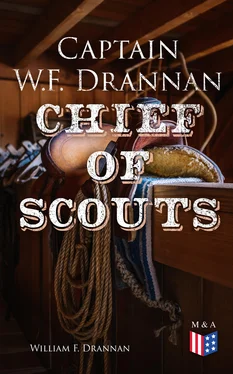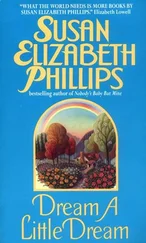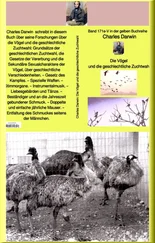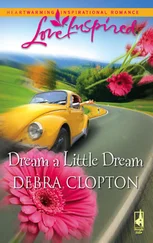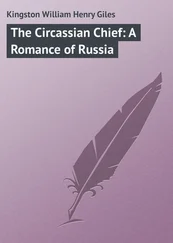William F. Drannan - Captain W.F. Drannan – Chief of Scouts
Здесь есть возможность читать онлайн «William F. Drannan - Captain W.F. Drannan – Chief of Scouts» — ознакомительный отрывок электронной книги совершенно бесплатно, а после прочтения отрывка купить полную версию. В некоторых случаях можно слушать аудио, скачать через торрент в формате fb2 и присутствует краткое содержание. Жанр: unrecognised, на английском языке. Описание произведения, (предисловие) а так же отзывы посетителей доступны на портале библиотеки ЛибКат.
- Название:Captain W.F. Drannan – Chief of Scouts
- Автор:
- Жанр:
- Год:неизвестен
- ISBN:нет данных
- Рейтинг книги:4 / 5. Голосов: 1
-
Избранное:Добавить в избранное
- Отзывы:
-
Ваша оценка:
- 80
- 1
- 2
- 3
- 4
- 5
Captain W.F. Drannan – Chief of Scouts: краткое содержание, описание и аннотация
Предлагаем к чтению аннотацию, описание, краткое содержание или предисловие (зависит от того, что написал сам автор книги «Captain W.F. Drannan – Chief of Scouts»). Если вы не нашли необходимую информацию о книге — напишите в комментариях, мы постараемся отыскать её.
Captain W.F. Drannan – Chief of Scouts — читать онлайн ознакомительный отрывок
Ниже представлен текст книги, разбитый по страницам. Система сохранения места последней прочитанной страницы, позволяет с удобством читать онлайн бесплатно книгу «Captain W.F. Drannan – Chief of Scouts», без необходимости каждый раз заново искать на чём Вы остановились. Поставьте закладку, и сможете в любой момент перейти на страницу, на которой закончили чтение.
Интервал:
Закладка:
For the next three days we traveled through a country well supplied with game, especially Elk, Deer, and black bear. It was now late in the summer and all game was in a fine condition, it was no unusual thing to see from twenty five to a hundred Elk in a band. I have never seen since that time so many Elk with so large horns as I saw on that trip, which convinced me that there had been no white hunters through that part of the country before.
In traveling along there were times we were not out of sight of deer for hours; consequently we never killed our game for supper until we went into camp, and as a rule, the boys always picked me to get the meat while they took care of the horses. I remember one evening I was just getting ready to start out on my hunt. I asked the boys what kind of meat they wanted for supper. Jonnie West said, "Give us something new." Well, I answered, "How will a cub bear do?" They all answered, "That is just what we want." That moment I turned my eyes to the south, and on a ridge not more than three hundred yards from camp, I saw three bears eating sarvis berries. I was not long in getting into gun shot of them. There was the old mother bear and two cubs. I had to wait several minutes before I could get a good sight on the one I wanted, as they were in the brush and I wanted a sure shot. I fired and broke his neck; he had hardly done kicking before Jonnie West and some of the Indians were there. We made quick work getting the meat to camp and around the fire cooking, and it was as fine a piece of meat as I ever ate.
The next morning we bid the Indians good bye, but before they left us one of them stooped down and with a finger marked out the route we should take, thinking we did not know the country we must pass over, and strange to say, the route this wild Indian marked out in the sand was accurate in every particular. He made dots for the places where we should camp and a little mark for a stream of water, then little piles of sand for mountains, some large and some small, according to the size of the mountain we were to cross. After he had finished his work, I examined the diagram and I found he had marked out every place where we should camp.
From there to the head of the Arkansas river, I called Jonnie West and asked him to look at it. He examined it at every point and said, "This beats any thing I ever saw or heard tell of; with this to guide us, we could not get lost if we tried to."
We were now ready to start. Jonnie said to me, "Well, I feel we owe this
Indian something. How many butcher knives have you?"
I said, "I have two." "Alright, I will give him this finger ring and you give him one of your knives."
We did so, and I think he was the proudest Indian I ever saw; he jumped up and shouted, "Hy-you-scu-scum, white man," which meant "Good white man."
The Indians all shook hands with us and then mounted their horses and were gone. We now pulled out on our long and dangerous trip to Taos, New Mexico, and strange to say, we never missed a camping ground that the Indians had marked out for us, until we reached the head of the Arkansas river, and the beauty of it was, we had good grass and good water at every camping place, which was very essential for ourselves and our horses.
When we struck the head of the Arkansas river we considered ourselves out of danger of all hostile Indians. Besides, we knew every foot of the ground we had to travel over from here to Taos, New Mexico. We camped one night on the river, down below where Leadville stands now, and I never saw so many huckleberries at one place as I saw there. After we had our horses unpacked and staked out to grass, I said to the boys, "Now you go and pick berries, and I will try and find some meat for supper." I did not go far when looking up on a high bluff I saw a band of mountain sheep. I noticed they had not seen me yet and were coming directly towards me. When they got in gun-shot, I fired and killed a half-grown sheep, and he did not stop kicking until he was nearly at my feet. This was the first mountain sheep I had ever killed, and it was as fine a piece of meat as I ever ate, and until this day, mountain sheep is my favorite wild meat. This was one of the nights to be remembered, fine fresh meat, and ripe huckleberries, what luxuries, for the wilds to produce.
In a few days we reached Taos, and here I met my old friend Jim Bridger.
After laying around a few days and resting up, Jonnie West said to me,
"Will, what are we going to do this winter? You are like me, you can't
lay around without going wild."
I said, "That's so, Jonnie. Let's go and hunt up Jim Bridger, and ask him what he is going to do this winter."
We went to the house where Jim was boarding and we found him in one of his talkative moods. We asked him what he proposed doing this winter; he said, "I am going out a trapping, and I want you boys to go with me."
I asked him where he was going to trap, and he said he thought he would trap on the head of the Cache-la-Poudre, and the quicker we went the better it would be for us. "I have all the traps we will need this winter," he said; "now you boys go to work and mould a lot of bullets."
The reader will understand that in those days we used the muzzle-loading gun, and we had to mould all of our bullets. In a few days we were ready to pull out. I asked Jim if we could keep our horses with us through the winter. He said, "Yes, as the snow does not get very deep in that country, and there is plenty of Cotton Wood and Quaker Asp for them to browse on in case the snow gets deep. Besides, it will save one of us a long tramp in the spring, for we will have to have the horses in order to pack our furs on."
In a few days we were ready to pull for trapping ground. Each one of us took a saddle horse and two pack horses. We were on the road nine days from the day we left Taos until we reached our trapping ground.
We traveled down Cherry Creek from its source to its mouth, and across the Platte, where Denver City, Colorado, now stands. At that time there was not a sign of civilization in all that country.
After crossing the Platte a little below where Denver now stands, we met about five hundred Kiawah Indians, led by their old chief. The Kiawas were friendly to us, and the chief was a particular friend of Jim. He wanted to trade for some of our beaver traps. He kept bidding until he offered two horses for one trap. Jim refused to trade, but he made the chief a present of a trap. After Jim refused to take the horses, a young squaw came running out and offered to give me as fine a buffalo robe as I ever saw; I was in the act of taking it and was congratulating myself on what a fine bed I would have that winter when Jim said, "Will, don't take that. There is more stock on that robe than we can feed this winter. Open the hair and look for yourself."
I did so, and I saw the Grey Backs all through the hair as thick as they could crawl. I had never seen such a sight before, and the reader can imagine my horror. I dropped it so quick that Jonnie West laughed and asked me if it burnt me. The boys had the joke on me the balance of the winter. Most every day they would ask me if I didn't want a present of a Buffalo robe from a young squaw.
A few days after this, we were on our trapping ground, and our winter's work of toil, hardship, and pleasure had begun. We soon had our cabin built in a little valley, which was from a half mile to a mile wide and about eight miles long. On each side of the valley were high cliffs. In places there was a half a mile or more where neither man or beast could climb these cliffs, and we were surprised later on to see the quantity of game of various kinds that came into this valley to winter, such as Elk, Deer, and Antelope. I never, before or since, have seen so many Wild Cats, or Bob Cats, as they were called at that time, and also some cougars.
Читать дальшеИнтервал:
Закладка:
Похожие книги на «Captain W.F. Drannan – Chief of Scouts»
Представляем Вашему вниманию похожие книги на «Captain W.F. Drannan – Chief of Scouts» списком для выбора. Мы отобрали схожую по названию и смыслу литературу в надежде предоставить читателям больше вариантов отыскать новые, интересные, ещё непрочитанные произведения.
Обсуждение, отзывы о книге «Captain W.F. Drannan – Chief of Scouts» и просто собственные мнения читателей. Оставьте ваши комментарии, напишите, что Вы думаете о произведении, его смысле или главных героях. Укажите что конкретно понравилось, а что нет, и почему Вы так считаете.
